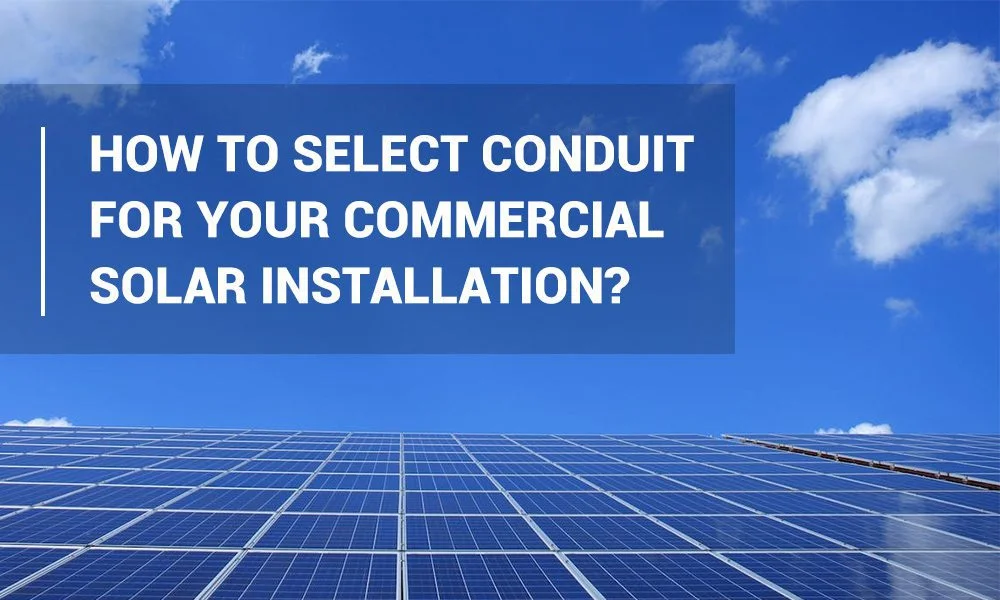How to select conduit for your commercial solar installation?
To install commercial solar systems, it’s necessary to route multiple electrical wires from the solar panels to the inverter and other electrical equipment. To ensure the safety, durability, and optimal performance of the system over time, conduit is used to protect and serve as a pathway for these wires. Choosing the right conduit for your project involves considering factors such as conduit types, size requirements, material options, and proper installation techniques. This article aims to provide you with comprehensive guidance on these aspects to help you make an informed decision for your commercial solar installation.
Types of conduit
Electrical metallic tubing (EMT) conduit is a flexible metal conduit made from thin-walled steel tubing. EMT conduit is cost-effective but more susceptible to physical damage. EMT is commonly used for indoor conduit runs due to its flexibility and lower cost.
Rigid galvanized steel conduit is made from thick-walled steel that is formed into rigid sections. It is more durable and rigid compared to EMT. However, rigid steel conduit also costs more. Rigid steel conduit is recommended for outdoor commercial solar installations where it can provide protection from the elements, impacts and vehicular traffic.
PVC conduit is made from rigid polyvinyl chloride plastic. PVC conduit is lightweight, non-corrosive and reasonably priced. However, it is susceptible to ultraviolet degradation over time when exposed to direct sunlight. PVC conduit is an excellent choice for direct burial applications and outdoor conduit runs that are partially buried. At Ctube, we manufacture a wide selection of PVC conduit sizes from 1/2 inch to 8 inches to meet your project requirements. We also offer customized conduit solutions to fit any commercial solar design.
Determining Conduit Size
Several factors determine the required conduit size for your installation:
Number and size of wires – More or larger wires require larger conduit. Consult wire manufacturer data or NEC tables to select the proper conduit size.
NEC requirements – National Electrical Code tables specify the maximum percent fill allowed for different types of conduit based on wire size and quantity. Conduit must be sized to meet NEC fill requirements.
Manufacturer recommendations – Solar module and inverter manufacturers specify minimum conduit sizes to ensure proper performance. Follow their recommendations for your specific equipment.
Selecting Conduit Material
There are tradeoffs when choosing between metallic or PVC conduit for a commercial solar installation. Factors to consider include:
Sunlight exposure – PVC conduit degrades over time in direct sunlight. Metallic conduit like rigid steel resists UV damage.
Burial depth – For direct burial applications at depths of 18 inches or more, PVC conduit is more suitable due to its flexibility.
Chemical resistance – PVC conduit is resistant to acids, alkalis and salts which may be present in soil. Metallic conduit is generally more susceptible to corrosion.
Many factors contribute to the right conduit choice for your commercial solar installation. At minimum, select conduit sized adequately for the number and size of wires, meet NEC fill requirements and follow manufacturer recommendations. Ctube offers PVC conduit and fittings to meet the demands and budget of any commercial solar project. Contact us today to discuss your conduit requirements and request a free quote. We look forward to being your source for reliable commercial solar conduit solutions.
Replated Topic : Everything You Need to Know About Solar Conduit
How to select conduit for your commercial solar installation? Read More »

